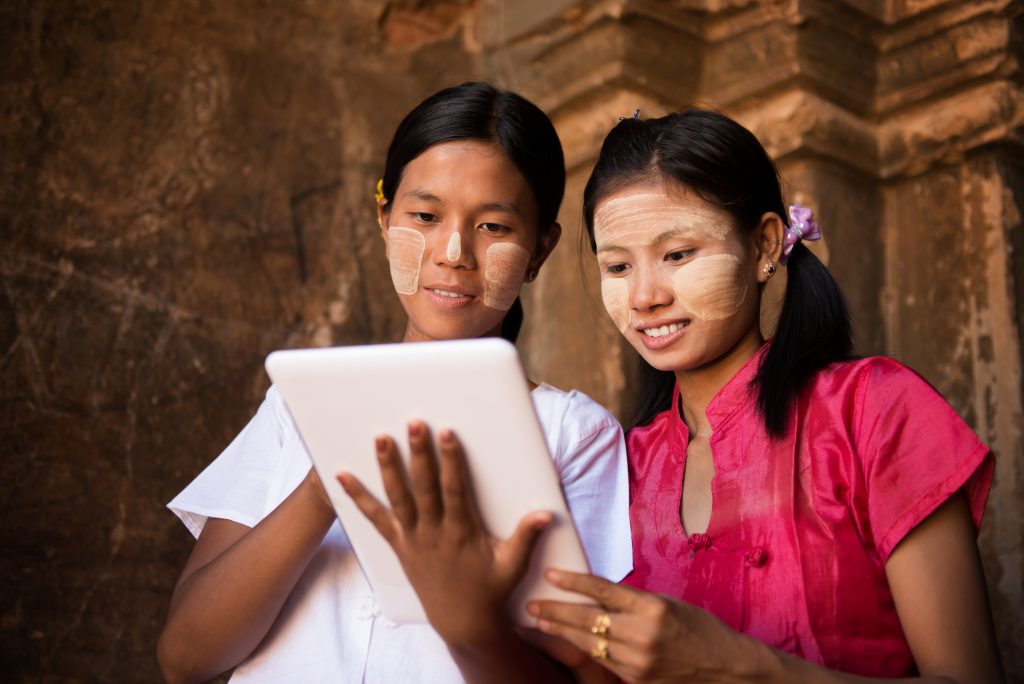As COVID-19 closes schools, colleges and universities around the world, it is critical that educational solutions, such as online and distance learning, do not widen the digital divide, argues Christiana Nikolitsa-Winter

The COVID-19 developments have urgent implications for educational institutions worldwide, and ask serious and urgent questions of education ministers, leaders, teachers and learners.
As closure notices go up outside schools and other places of formal and non-formal education, the challenge we face is how to ensure the continuity of learning through a period of unprecedented disruption.
We need to offer learners robust, innovative solutions relatively fast and to create opportunities for online teaching platforms to reach all, rather than only a small group of learners.
According to data released by UNESCO, more than 850 million children and young people – roughly half of the world’s student population – are staying away from schools and universities due to the COVID-19 pandemic. Nationwide closures are in force in 102 countries and local shut-downs in 11 others. Further increases in these numbers seem certain.
The unprecedented scale of this challenge is obvious. Countries and institutions worldwide are struggling to fill the gap with distance and online learning, exploiting a range of technologies and approaches.
There are many examples of free online learning and broadcasting platforms, from the very simple but creative to those relying on more sophisticated education infrastructure, being used right now around the world to continue education provision and avoid major interruption to learning.
Mindful that school closures hit vulnerable learners the hardest, UNESCO has published a list of freely accessible learning applications and platforms, and hosted a first global virtual meeting of 73 countries including 24 education ministers and 15 vice-ministers on 10 March 2020 to address the crisis. Further meetings will follow as part of UNESCO’s efforts to launch a global coalition to accelerate deployment of remote learning solutions. UIL is hosting two webinars for learning cities seeking to respond to the educational challenges posed by the crisis. UNESCO is urging countries to use inclusion and equity as guiding principles in planning their responses.
It is important that we respond positively and compassionately to these challenges, and keep the needs of the least-advantaged learners to the fore. Two thoughts come to mind in relation to these developments.
First, this wider use of online and distance learning technologies could develop some of the skills we are all likely to need in the twenty-first century, such as adaptability and creative problem solving, as well as creating a better understanding of new technologies and advancing digital skills.
As teachers and students alike struggle to come to terms with this new educational reality, there is an additional lifelong learning challenge – how to foster a lifelong aptitude and willingness to learn, perhaps the critical skill of our current century.
Second, we have to ensure that the existing digital divide does not widen. Most education institutions are finding solutions to continue teaching for free, but up to now the quality of learning depends on the level and quality of digital access. Only around 60 per cent of the globe’s population is online and the rest is underserved.
While virtual classes and access to the latest technologies may be standard in some parts of the world, the education divide will be widened if there are still many individuals (children, youth and adults) in less developed parts, who are hard to reach. If they have access at all it is often very limited and low-quality, or else they rely on lessons and assignments sent through mobile phone messages or emails.
As UNESCO’s Director General Ms Audrey Azoulay noted: ‘We are entering uncharted territory and working with countries to find hi-tech, low-tech and no-tech solutions to assure the continuity of learning’.
This is why partnerships between stakeholders – and the support of the international community – are needed now to ensure that education continues to be provided to everyone and that no one is left behind.
Christiana Nikolitsa-Winter is a Programme Specialist at UIL
